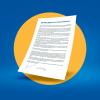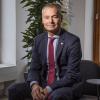
The Vienna Statement on Science Diplomacy, a document advocating for a renewed global commitment to international scientific cooperation to help countries build stronger relations for the benefit of all of humanity, has been endorsed by more than one hundred eminent personalities from the academic and policymaking community.
We find ourselves at a time where society faces multiple complex and interconnected problems that no nation can hope to successfully address on its own. Moving towards a sustainable future that is fair and just for all citizens of the world and underscored by sound scientific evidence, will require the joint efforts of the research and policy communities worldwide. There is a need for international scientific cooperation based on the principles of dialogue and solidarity to ensure a sustainable and prosperous future for all. These goals lie at the heart of science diplomacy.
The Vienna Statement on Science Diplomacy is the product of a high-level event organized by the International Institute for Applied Systems Analysis (IIASA) in June this year to discuss the crucial role of international scientific cooperation in enabling researchers to access additional expertise and gain new perspectives on research, unlocking scientific discoveries, and promoting scientific advancement. Discussions at the event also explored how international scientific cooperation helps countries to build stronger relations and how it contributes through evidence-based solutions to international negotiations and increased prospects for peaceful co-existence.
Speakers at the event included dignitaries such as H.E. Ban Ki-moon, 8th UN Secretary-General and Co-chair of the Ban Ki-moon Centre for Global Citizens; H.E. Tarja Halonen, 11th President of the Republic of Finland and member of the UN Secretary-General’s High-Level Advisory Board on Mediation; Sir Peter Gluckman, President of the International Science Council; Jeffrey Sachs, recent recipient of the Tang Prize in Sustainable Development; and Teresa Indjein, Director General for International Cultural Relations at the Federal Ministry for European and International Affairs of the Republic of Austria, all of whom have since added their signatures in support of the statement. Among the more than one hundred signatories that have endorsed the statement to date is also Nobel Prize laureate Sir Paul Nurse, who was one of the recipients of the 2001 Nobel Prize in Physiology or Medicine.
"Science has never been more important for addressing the challenges we face at every level from local to global. Science is a global language and can help the diplomatic community address the global commons, while also using the strengths of the global science community across all the disciplines of natural and social sciences to cross fractured boundaries and drive collaboration and action on the many issues threatening society, and the planet. The International Science Council has reviewed its own priorities and will be placing science diplomacy at the heart of its efforts," notes Sir Peter Gluckman.
By signing the statement, signatories agree to, among others, promote freedom and access in the conduct of science, free and open exchange of scientific ideas and information, open access to publications, research integrity and societal responsibility, freedom of cooperation across borders for individual researchers; underpin measures for scientific support and the provision of infrastructure to address emerging global and regional challenges through cooperation and collaborative work; and recognize activities of institutions worldwide in the field of science diplomacy, by practicing science diplomacy in their everyday activities, doing research on science diplomacy, or teaching science diplomacy as a discipline.
“The Vienna Statement on Science Diplomacy proclaims a common vision of science diplomacy in the future, emphasizes the benefits that science diplomacy can bring to tackling the global challenges of our time, and outlines the principles needed to foster science diplomacy worldwide,” says Amb. Indjein.
"IIASA has become a scientific compass in multiple processes of transition in applied systems analysis. With global problems becoming even more complex and increasingly urgent, and the world more divided, its efforts to help build trust between nations through science could not be timelier and more crucial. IIASA and its member states spanning from Africa to the Americas, Asia, and Europe deserve our full and continued support," concludes H.E. Ban Ki-moon.
Should the Vienna Statement on Science Diplomacy resonate with your personal vision, you are invited to endorse and sign the document. Simply contact us by clicking on the link below and leave your full name and affiliation.
Further information:
iiasa.ac.at/vssd
To sign the statement, please fill in the form below:
News

03 February 2025
Dr. h.c. Johan Kuylenstierna receives prestigious H.M. The King's Medal

17 January 2025
IICA explores research opportunities with IIASA

05 December 2024
